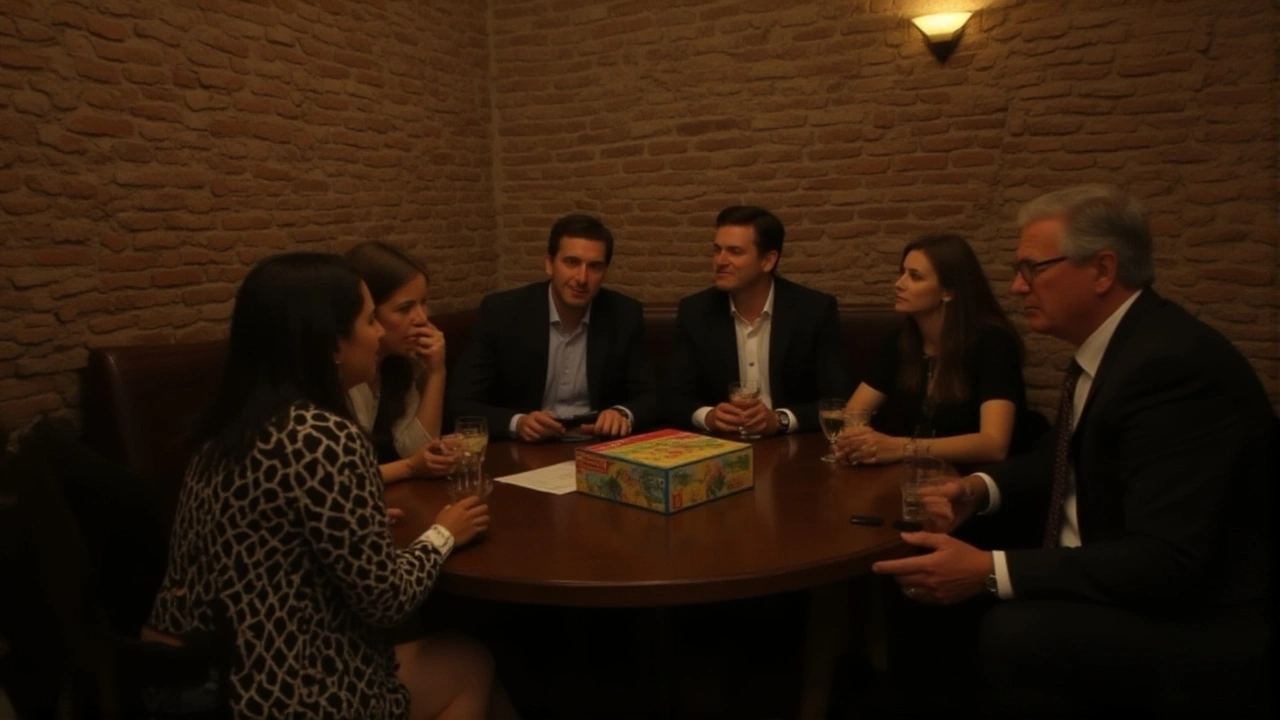When Rock Harper, the former winner of Gordon Ramsay’s “Hell’s Kitchen” Season 3 opened Hush HarborWashington, D.C., the city’s first phone‑free bar, the sidewalks of Northeast H Street filled with curious diners.
The Concept and Its Historical Roots
Harper didn’t stumble onto the idea in a marketing boardroom. After a year of logging how many minutes he spent scrolling, he realized his own screen time was eating away at the simple pleasure of a good meal. The name “Hush Harbor” comes from secret gatherings of formerly enslaved Africans who met in hidden forest clearings to share stories, songs, and faith. “My mother used to talk about those hush harbors as pockets of safety and community,” Harper explained. By invoking that history, he hopes to create a modern sanctuary where people can pause the digital noise and reconnect face‑to‑face.
Inside Hush Harbor: What the Experience Looks Like
From the moment patrons step through the neon‑lit doorway, they’re handed a sleek magnetic pouch that locks onto a Yondr‑style bag. The pouch stays on the customer’s person – a subtle reminder that the bar isn’t policing, it’s protecting the vibe. “We’re not taking phones away,” Harper said in a brief WTOP interview outside the venue. “We’re just asking people to keep them on their person, out of sight.”
Designated phone zones sit near the back, staffed by a bartender who can unlock the magnetic strip for a quick check‑in. For emergencies, a vintage rotary landline sits on the bar, offering a nostalgic click that some patrons say feels like “calling Mom’s house in the ’90s.”
The interior leans into warm Southern aesthetics – reclaimed wood, brass fixtures, and walls lined with board games and well‑worn books. No digital menus; a handwritten chalkboard lists the night’s specials, encouraging patrons to ask the staff for recommendations.
Menu, Pricing, and the Southern Twist
Harper’s culinary background shines through a menu that blends comfort with craft. Highlights include buttermilk biscuits topped with smoked ham, braised kale served atop cornbread, and a Cajun red‑beans‑and‑rice dish that arrives with a side of crisp collard greens. Shrimp tossed in a Creole remoulade adds a coastal flair, while candied pecans provide a sweet finish. Most plates sit between $5 and $15, making the fare accessible for a night out that isn’t centered on a pricey cocktail.
The drink list takes classic cocktails and gives them a Southern makeover. A “Mole Old Fashioned” incorporates Mexican chocolate bitters, while the “Italian Margarita” swaps tequila for Aperitivo. Harper’s own spin on the “Bee’s Knees” swaps honey for locally sourced sweet tea syrup, delivering a subtle nod to his D.C. roots.

Community Reaction and Expert Opinions
Initial skepticism – “How can anyone survive without their phone?” – quickly turned into enthusiastic chatter on social media. Reviewers praised the bar’s calm atmosphere, noting that the lack of notification pings made conversations feel richer. Georgetown University professor Costine Kushv, who studies technology’s impact on wellbeing, said, “When people are forced to be present, they report small but measurable boosts in positive affect. Hush Harbor is a living lab for that hypothesis.”
Local business owners have also felt a ripple effect. The Cambodian‑Taiwanese eatery Maketto, just a few doors down, reported a 12% increase in lunchtime traffic on opening day, attributing the bump to foot traffic drawn by the bar’s novelty.
Looking Ahead: The Future of Phone‑Free Spaces
Harper isn’t content to rest on his laurels. He’s already testing pop‑up, phone‑free evenings at other venues across the city, and talks of expanding the concept to a rooftop lounge are in the works. “We’re not trying to punish people,” he says. “We’re just offering a different kind of service – one that reminds you that a good conversation can be just as compelling as a good tweet.”
Industry analysts note that Hush Harbor could spark a niche trend among millennials and Gen Zers who are increasingly aware of digital fatigue. If the model proves profitable, we may see similar concepts popping up in other dense urban markets, from Brooklyn to Austin.
Frequently Asked Questions
How does Hush Harbor affect Washington D.C.’s nightlife scene?
By offering a phone‑free environment, Hush Harbor adds a distinct choice for night‑owls seeking a quieter, conversation‑focused outing. Nearby bars have reported a modest uptick in patrons looking for a “digital detox” night, suggesting a growing demand for such alternatives in the city’s vibrant after‑dark economy.
What can guests do if they need to check their phone urgently?
Designated phone zones at the back of the bar let staff unlock magnetic pouches for a quick glance. If a longer conversation is needed, patrons can step outside to the street‑level patio, where they can use their devices without breaking the bar’s core rule.
Who is allowed to use the landline provided by the bar?
The landline is available for any emergency or essential call. Staff keep the handset nearby and will hand it to a guest who explains the need, ensuring the policy stays respectful while still covering safety concerns.
What do experts say about the mental health impact of a phone‑free bar?
Researchers like Costine Kushv note that brief periods without digital interruptions can improve mood and increase feelings of social connection. He likens the experience to a “digital nap” that recharges emotional wellbeing.
Will the concept expand beyond Washington D.C.?
Harper has hinted at pop‑up, phone‑free events in other cities and is exploring a rooftop version in D.C. His long‑term plan includes franchising the model to other urban markets where people crave a break from constant notifications.
